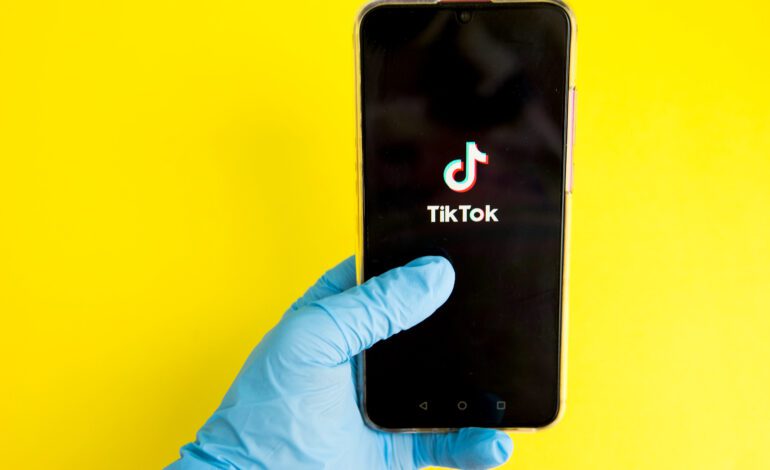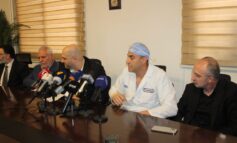This article was contributed by Sumaiyah Ahmed, MHA, public health coordinator for ACCESS, and has been edited for style
TikTok is a popular short-video app best known for its trendy dances and outlandish humor. However, it has also become a venue for healthcare providers to share health and wellness information with younger audiences.
A few months ago, I was scrolling through TikTok when I saw a clip of a South Asian doctor from Dayton, Ohio. The doctor started the clip by asking, “Did you know that South Asian bodies are made differently than other ethnicities?” As a Bangladeshi American, I was intrigued and continued to listen as he explained how South Asian bodies are six times more likely to develop diabetes. In subsequent videos, he elaborated on how repeated famines inflicted by colonial rule in the Desi region – made up of Pakistani, Bengali and Indian communities – resulted in individuals with significantly less body mass and a much higher fat disposition.
This video quickly spread across TikTok, particularly among the Desi communities, ultimately garnering almost 3.4 million views. The comments section was filled with despair and worry, with comments ranging from “I don’t want to be South Asian anymore” to “now I’m curious about my Southeast Asian body.” One comment gained popularity, as a user typed “we need more research on us!”
As a newly graduated public health professional, I found the doctor’s video to be extremely effective. He raised awareness and fostered a conversation about a health matter so many of us had witnessed affecting our elders growing up.
Understanding our bodies and health has enormous power. With the fast-growing availability of extensive health data, public health research is expanding. When we understand health concerns and patterns, we can address issues plaguing our bodies and our communities. Currently, the majority of published genome-wide association studies include less than 3 percent of African, Hispanic or Latin American ancestry, with many respondents (86 percent) identifying as White, according to HealthITAnalytics.
While health care providers can examine patients and address ongoing symptoms, diverse health data sets allow researchers to study specific demographics and can help identify patterns at a systemic level. These diverse data sets could lead to the development of more personalized treatment and prevention strategies, such as better identifying the risk of diabetes among South Asians, which can lead to solutions and informed community decision-making.
@desidoc.md Follow along for more facts and tips from your desi doc! #doctorsoftiktok #healthtips #southasian ♬ Monkeys Spinning Monkeys – Kevin MacLeod & Kevin The Monkey
If a doctor on TikTok provided the Desi community with the diabetes reminder we needed for healthy snacking, I can only imagine how similar region, culture and gene-based health data will benefit all our communities in the future.
As a South Asian, my family and I were aware of the prevalence of diabetes in our families, but we were unconcerned. Through greater education about our genes and health history, we are learning to build a healthy lifestyle that works best for us. Access to diverse studies and data that are representative of communities can aid families, like mine, in having a better understanding of their health needs.
The need for greater health education and my desire to help communities around me, not only today but in the future, has led to my current work with the All of Us Research Program. All of Us, part of the National Institutes of Health (NIH), aims to help build one of the most diverse health databases in history.
This program not only looks to construct a more inclusive database, but also welcomes researchers of all backgrounds. This database may one day help researchers find ways to treat and prevent disease. This research initiative comes at an ideal time in the history of health data, as big data and AI are leading to the development of analytical tools.
Participants in the All of Us Research Program have the opportunity to receive information about their DNA. With “nearly 50 percent of the genetic data available coming from participants who self-report as being part of a racial or ethnic minority group”, this database paves the way for more than 165,000 diverse genomic arrays (All of Us Research Program). The biosamples collected from participants can aid in critical discoveries about their environment, lifestyles and genetic ancestry. Increasing diversity and inclusion in health research will help to advance equitable medicine.
My decision to join the All of Us Research Program was clear. As a strong advocate of health care as a human right, I firmly believe in the power of shaping health and health care for the betterment of our communities. I eagerly await the growth of this critical program, as well as the improvement of health outcomes and disease impact. As biomedical research advances, inclusive data and research are becoming increasingly important as care shifts to value-based treatments.
If a doctor on TikTok provided the Desi community with the diabetes reminder we needed for healthy snacking, I can only imagine how similar region, culture and gene-based health data will benefit all our communities in the future.
To learn more about the All of Us Research Program, visit Joinallofus.org/togetherDETROIT.
— Sumaiyah Ahmed is a Michigander focused on public health and environmental causes in the communities around her. As a Bangladeshi American, she is committed to the betterment of underrepresented populations. Ahmed has her master’s in healthcare administration from Columbia University.






1 Comment
Moe
October 24, 2022 at 10:28 pmThis is such a well written piece!!! I’d love to read more by this author.